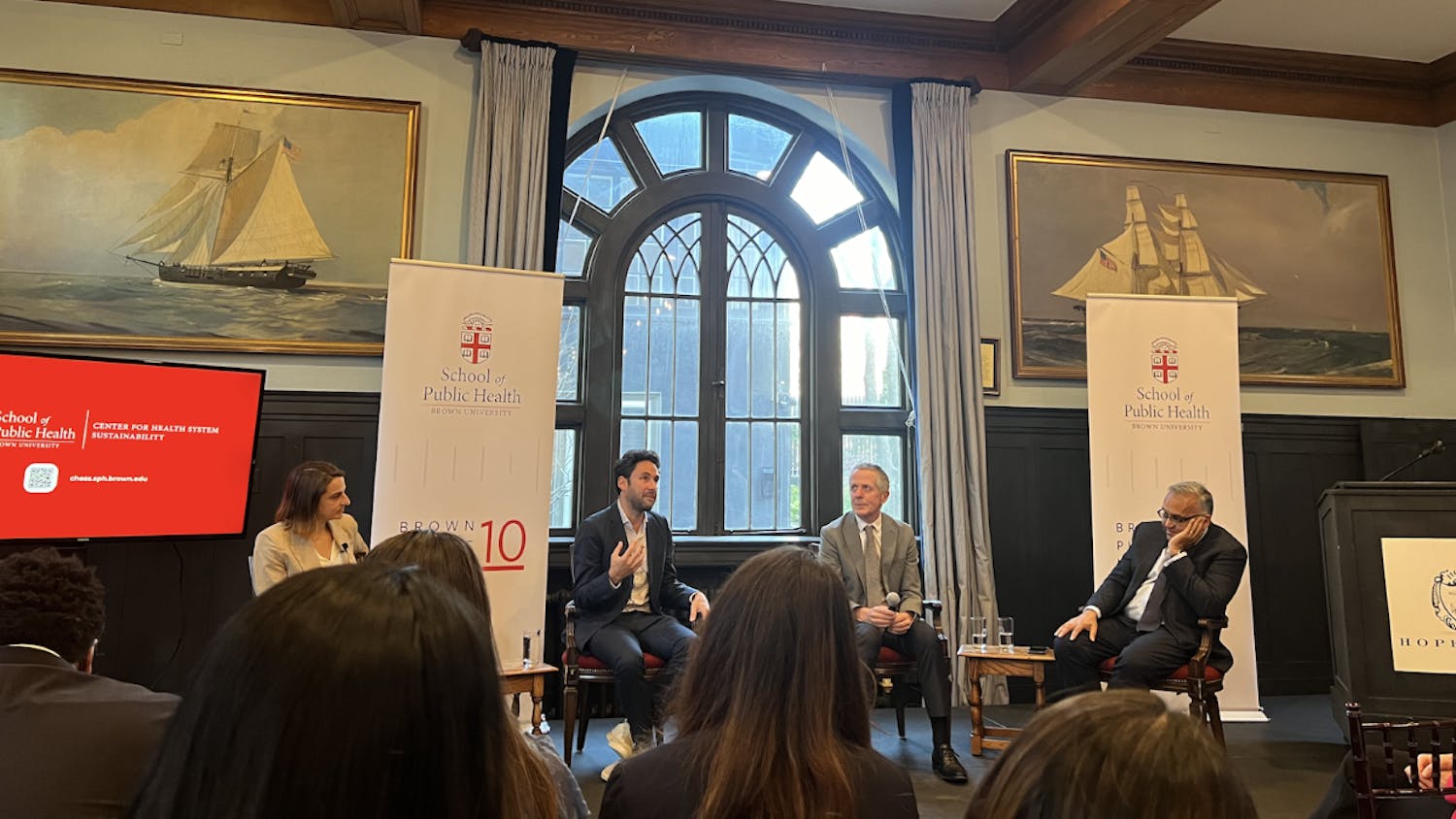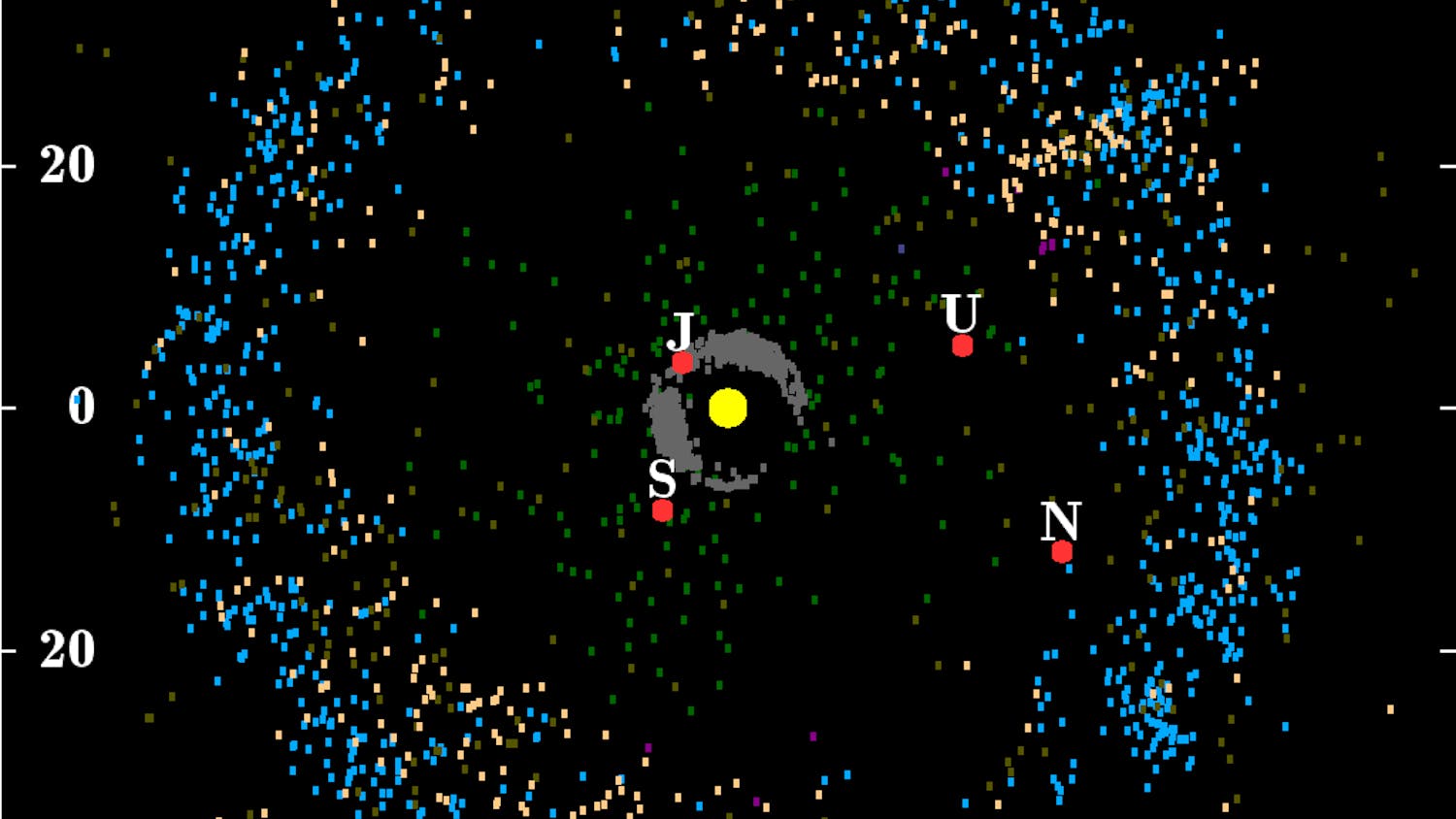Human odometer
Humans continually estimate distances — whether while guessing if there is enough time to cross the street before a car passes by, calculating how far a Frisbee should be thrown or pondering how long it will take to walk to the mall.
The internal human odometer was the subject of a recent study conducted by researchers in the Department of Cognitive, Linguistic and Psychological Sciences. The researchers sought to discover whether a human’s ability to estimate distances was internal or based on external inputs.
Subjects of the study first traveled an “outbound” distance and then attempted to travel the same distance they initially traveled. The researchers used a variety of locomotive methods — subjects walked, galloped and threw objects to estimate distances.
Subjects estimated distances more accurately when the distance input was the same as the output used to estimate that distance. For example, subjects were better at estimating distances originally galloped when they galloped to replicate it rather than walking.
The findings support what the researchers called the “intrinsic model” of human distance estimation: the idea that humans can more accurately predict distances when they can embody the distance, rather than objectively estimate it.
Cancer genetics
Dendrix, a computer-based algorithm designed by Brown computer scientists, offers much promise for untangling the genetic mapping that may lay the foundation for 12 different types of cancer, including breast, lung, colon and kidney.
Dendrix scours genetic codes to pinpoint spots in the human genome where mutations can predispose people to certain cancers. Ben Raphael, associate professor of computer science, Fabio Vandin, adjunct assistant professor of computer science, and a host of graduate students designed the algorithm.
The program has identified numerous locations on the genome common to many forms of cancer where, if mutation occurs, the individual is predisposed to cancer.
Along with a preexisting algorithm also developed by Brown computer scientists, Dendrix has helped scientists map out the genetic infrastructure of a blood cancer called Acute Myeloid Leukemia.
The algorithm is part of a project called The Cancer Genome Atlas, which works to increase understanding of the genetic basis of cancers.
Econometric recognition
The Econometric Society named Roberto Serrano, chair of the economics department, as a new fellow Nov. 3.
Serrano, who specializes in microeconomic theory and game theory, has worked in areas such as bargaining theory and the economics of risk, according to his Brown research profile.
He has taught numerous undergraduate and graduate courses such as ECON 0110: “Principles of Economics,” ECON 1110: “Intermediate Microeconomics” and ECON 1870: “Game Theory and Applications to Economics.” He has also published two books: “A Short Course in Intermediate Microeconomics with Calculus” and “Welfare Economics and Social Choice Theory.”
As a fellow, Serrano will meet with other international leaders in the field throughout the year at numerous conferences around the world. The society’s members aim to unite the fields of statistics and mathematics with economic theory.
ADVERTISEMENT




